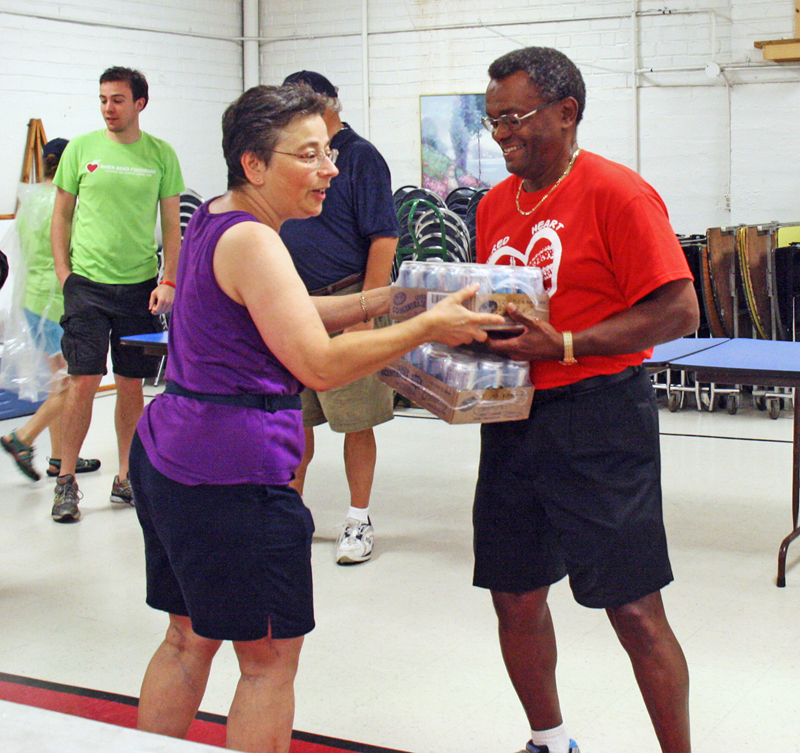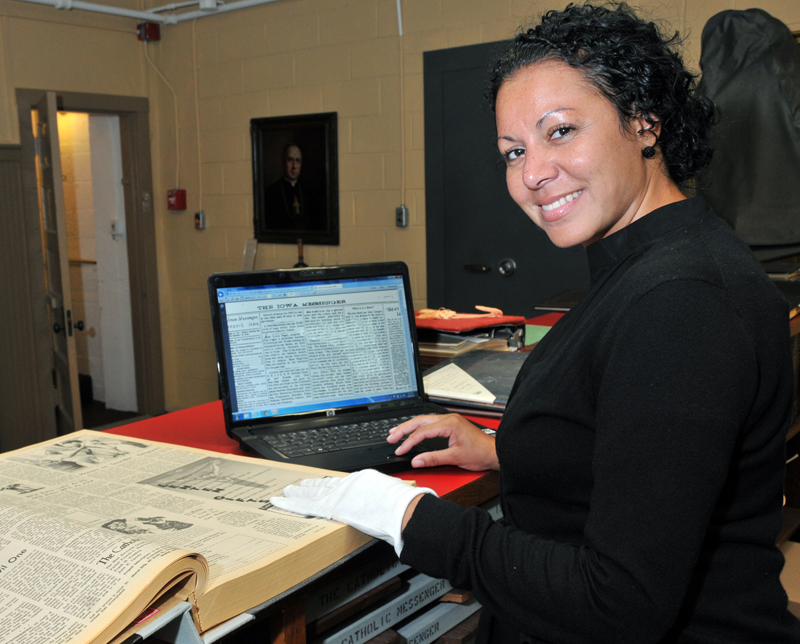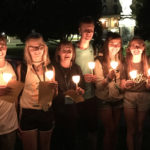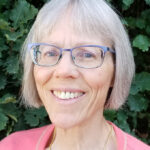Racism doesn’t start and stop in Milwaukee, Minneapolis-St. Paul, Dallas, Baton Rouge, Baltimore or Ferguson; it exists in Iowa, too. Ask any person of a different race who you are acquainted with through family, friendship, work or school whether or not racism exists. Then ask yourself: If I believe in the sanctity of every life, as my church teaches, how am I demonstrating that belief toward people of a different race?
“… Racism is the sin that says some human beings are inherently superior and others essentially inferior because of race. It is the sin that makes racial characteristics the determining factor for the exercise of human rights. It mocks the words of Jesus: ‘Treat others the way you would have them treat you….’” (Brothers and Sisters to Us, U.S. Catholic Bishops, 1979)

Gale Francione and Jim Collins pass food for a mobile food pantry at Sacred Heart Cathedral in Davenport in this file photo.
The U.S. bishops published a strong pastoral letter on racism 37 years ago. But the scar of racism that mars the face of the United States grew deeper and uglier this summer in the aftermath of deadly shootings of African-American men and of police officers. Three of the shootings happened in successive days in early July, claiming 11 lives, each one of which mattered!
“Every Catholic knows from the life, death and resurrection of Jesus Christ that all lives matter,” Bishop Edward Braxton of the Belleville, Ill., Diocese wrote in his letter “Moral Leadership in Action: All Lives Really Do Matter.” But, “this universal truth obscures the sad truth that People of Color have often not been included as part of ‘all lives,”’ the bishop, an African-American, wrote in his letter this summer.
Bishop Braxton calls all citizens to exercise moral leadership in action — from law enforcement and protest groups to parents, coaches, businesses and religious leaders, including the Catholic Church. He gives us the key components to provide moral leadership in action: “think, listen, learn and pray and act….”
His brother bishops in the U.S. Conference of Catholic Bishops (USCCB), which includes the Davenport Diocese’s Bishop Martin Amos, have called for a “Day of Prayer for Peace in Our Communities” on Sept. 9. In Davenport, a day of adoration will be held at Sacred Heart Cathedral, beginning at 5 a.m. Mass will be celebrated at 8 a.m. and 5:30 p.m. and adoration will continue afterwards. All are welcome. Prayer, dialogue and communication are essential, says the cathedral’s pastor, Father Rich Adam. But prayer comes first.
If you can’t make it to the cathedral, consider organizing a prayer service in your parish. The Day of Prayer for Peace in Our Communities is just a start, and the fruits of that prayer must continue beyond Sept. 9. The USCCB’s president, Archbishop Joseph Kurtz, should be commended for appointing a task force that aims to promote peace and healing in society. Archbishop Kurtz stresses the need to nurture open, honest and civil dialogue on issues of race relations, restorative justice, mental health, economic opportunity, and addressing the question of pervasive gun violence. We are to pray, reflect and discern action steps. The USCCB racism page (www.usccb.org) provides a variety of resources to get us started.
I asked two African-American Catholics in our diocese for their guidance on eradicating racism: Tyla Cole and Jim Collins. Tyla, the Davenport Diocese’s archivist, believes that eradicating racism “starts in the pews. It calls for prayer and the authority of the Gospel. We need to educate ourselves on the truth of racism through understanding similarities that different racial groups have, and create dialogue. The church can show renewed strength and transformation by leading and by doing. Blessed Teresa is a prime example of embracing those who are considered outcast. She was a universal model for society. To teach mercy, she said, you must be perceived as being merciful.

Tyla Cole, archivist for the Diocese of Davenport, looks at an archived copy of The Catholic Messenger online in this file photo.
“All my life,” Tyla said, “I’ve been asked the question ‘What are you?’ The daughter of a white father and black mother, I am no stranger to questions and misperceptions about my appearance. There is hope, but first recognize the fear, thoughtlessness, and need for education, development, and then healing will come.”
Jim, a retired Deere and Co. executive and Sacred Heart Cathedral parishioner, shows us how to put prayer into action:
1) Become informed. Read books, watch historical documentaries, attend conferences on racial/cultural differences such as St. Ambrose University’s annual Civil Rights Week Celebration.
2) Enter into conversation with friends, co-workers, neighbors, members of your church who are of different racial/ethnic backgrounds. Ask questions such as: Have you, personally, or do you personally know someone of your race who has been profiled and stopped by law enforcement? How did you/they feel?
3) If you are white, attend a black church; if you are black, attend a white church.
4) Start an integrated initiative that brings people of different races, ethnicity and socio-economic backgrounds together (e.g., a book club) in “conversation” to understand our differences and our likeness, our racial shortcomings (racism is a two-way street) and our successes (e.g., a black president of the USA).
5) Attend a program of a racial minority organization such as St. Martin de Porres Society at Sacred Heart Cathedral, NAACP, LULAC, etc.
We are obligated to be working to find the answers, as Jim says. “We may have come here on different ships, but we’re all in the same boat now. Like it or not, we’re co-dependent for our joint survival or to squander the blessings of hope, dreams and prosperity or to go down as fools.” Let’s start to put a stop to racism.
Barb Arland-Fye, Editor
(arland-fye@davenportdiocese.org)











